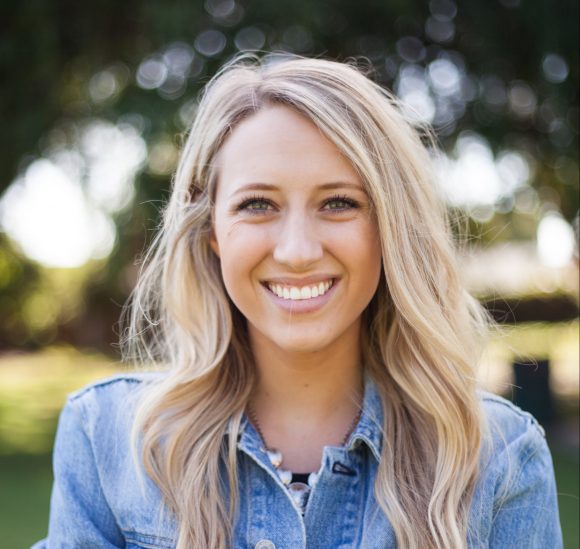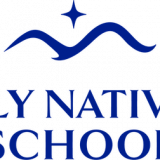Introducing Tess Buckley- PhD Candidate 2022 Read about Tess Buckley's Graduate School Experience
October 7, 2021
 What year did you start at Chapman?
What year did you start at Chapman?
I started at Chapman University in 2019 after completing my Masters at Cal State Fullerton in Organizational Communication and Rhetoric.
What is your specific field of study?
Health and Persuasion
What made you choose the School of Communication at Chapman University?
I was an adjunct professor for a few years and I always knew that I wanted to go and pursue my PhD in order to become a full time tenure track professor one day. I met Dr. Keith Weber and other Chapman faculty at a national communication association conference. At the time, I didn’t know Chapman had a doctorate program. It was a brand new program that happened to have an emphasis in health communication and other subfields of communication. I got lucky enough that I got into Chapman and some other schools I had applied to. However, I just adored the faculty I’ve met at Chapman and the opportunities they had for us to teach and do research.
What are you getting your PhD in?
My area is Health Communication and Persuasion so I focus on messaging, health campaigns, and how we make sense of messages and how we can construct effective messages that can help individuals in their health and well-being overall. Whether that be physical health, health campaigns to promote vaccines or whether that be emotional and psychological well being as well to see the effects of stress on communication and our emotions and well being. Anything really that has to do with health and messaging is my area of expertise.
What do you plan on doing with your PhD?
My goal is to be a tenure track, full time professor at a university. There are people who do health communication and communication PHDs and don’t stay in academia so there are other routes that you can take. You could work for health core organizations or for public health agencies as well. Just for communication in general, say you do organizational communication or interpersonal, you could go into consulting and work for different firms. So there are a ton of different routes outside of academia but I personally am hoping to stay in academia and usually most people who get their doctorates are.
Please tell us a little bit about your dissertation
My dissertation is looking at Covid 19 health messages and specifically looking at how different political ideologies respond to health messages. From that better understanding, I’m hoping to create more effective health messages for Covid 19 like wearing a mask, social distancing, that will decrease resistance to the persuasion that we’ve been seeing. We have been resistant to persuasion because we have been fatigued from all the compliance stuff going on and seeing the messaging everywhere. We aren’t noticing it as much and we are kind of on autopilot doing it. Some individuals are resisting it because they don’t want to be told what to do. So how do we combat those boomerang effects we see in persuasion? I’m looking at people’s morals and values and trying to frame messages in a way where they will be a bit more receptive to it. I’m doing a mixed method of research like focus groups and testing some messaging to try to create more effective health messaging specifically for Covid 19.
How did you develop this proposal?
When we go to persuade individuals and try to have difficult conversations or try to get them to do something that we believe is in their best interests, whether that be wearing a mask or going to a certain school. We often communicate to them in a way that we would want to be communicated to rather than really looking at the audience or other party. Looking at what they value, where they are coming from, and how I can communicate pretty much using their language to get you to see my side of the issue. That seems a bit self explanatory but we don’t often do it. There are many different ways we can approach it and so I’m looking at it in a specific way and diving into an individual’s morals. With lots of reading on the effects of prolonged exposure to health campaigns. There have been some interesting op-eds and journal articles that say as a society we are fatigued and resistant even if we are complying. What does it look like to construct effective long term health messaging? As well as creating them to keep and gain our attention but also messages that will decrease resistance to opposition for individuals who don’t want to comply with something like a global pandemic. I was reading all these different issues that were coming out during my PHD program and in the midst of the pandemic and asking myself, as a communication scholar, what are some effective ways that we can bridge these cultural divides over health issues? What are effective ways we can construct health messages that will gain and retain people’s attention over a long period of time? All of these different avenues and questions that I wanted to explore. In my dissertation I came across research that was coming out in the middle of the pandemic about communication issues and was like this is an interesting problem to try to solve and learn more about. For my research I take a very pragmatic approach to things. I want it to be something that people can implement as soon as they read the paper. For me it was something very hands-on and practical and I believe it is something we can all benefit from.
How does this relate to your broader program of research?
I have a deep passion for understanding as well as helping other individuals navigate the art of having a difficult conversation. At the heart of that is messaging, and how to make sense of them, how we interpret it and construct them. For me, my long term research agenda is to dive into how we can take what we know from mass communication and mass health communication and effective messaging and then apply that to interpersonal messaging. So bridge health communication, the mass side, which would be public health stuff, to the interpersonal side. To help individuals have more tools to have those difficult conversations, whether that be with a partner or doctor or whatever that is.
Do you foresee any hold-up in completing the Dissertation or do you (and your advisor) believe that you will be Dissertated by the beginning of Summer?
There are always little hiccups, especially because my topic is COVID which is ever changing. Over the summer I had some mini freakouts, especially when the vaccine came out. I wanted to focus on compliance messaging with masks and social distancing, so I had to sort of restructure it and might even need to restructure it even more or switch to talk about vaccines a little more than masks. My focus groups will determine whether the focus will be vaccine or mask mandates. If anything, the only thing i’m nervous about is the ever changing nature of covid right now and it’s really hard to predict and with research you conceptualize everything you plan out exactly what you want to do months ahead of time. My focus is on something that is still changing to this day so I have to constantly look and say well this just changed so this part of my method needs to change, so I have to be a little more flexible in my approach to things. I don’t see this holding me back from finishing in time, but I think it will require me to switch a few things around and make changes here and there.
Can you tell us about your experience with comprehensive exams?
For comps, I chose to do the test route. The test route includes three six-hour days of testing that goes over everything you have ever learned in your PhD program. Each day observes a different area- primary, secondary, and methods. So my first day was health communication. For the whole summer I studied everything I have ever learned so far in the program of health comm, including different theories, critiques and how to apply them. So I memorized as much as I could and showed up. As well as regurgitating the research that has been done with these theories and highlighting your own voice as an emerging scholar. Where you think the next research agenda should be. My secondary area is in persuasion, so the next day I tested my knowledge on persuasion research and theories. Third day is methods, so I was tested in qualitative research methods. Everything you have learned on how to properly conduct qualitative research. It is a time to demonstrate your knowledge in these areas because these are the classes you will be teaching or the research you will be conducting.
Any advice for future students preparing for comps?
Take everything you have learned from your professors, mentors, classes, and study your butt off.
Has your perspective on the process or point of comps changed now that you are on the other side?
Comprehensive exams are a dark shadow that you hear about from other people and professors, you think to yourself “I want my PhD but I don’t want to go through comps”. I had test anxiety, and imposter syndrome, wondering if you are going to remember everything you need to remember or asking if I can even do this. In the end, I am very grateful for that experience, I think it challenges us in such a unique way and I truly left comps feeling like “I know this area of research” but it is also humbling. The more you learn, the more you realize that there is so much I could possibly know. But leaving comps made me more confident in my area of expertise, and on the other hand you are humbled by how much knowledge is out there and how brilliant and smart other academics are and know that we get to learn from them.
I went in terrified and left extremely grateful. It is a great rite of passage for PhD students, and it’s just the right amount of challenging and it prepares us really well for our careers outside of this whether that be in academia or not.
Any advice for any students looking into the program?
I think my top advice would be to talk to your professors. Ask them out to coffee or even over zoom with Covid nowadays and just pick their brain. Especially if it’s a class you’re interested in, just talk to them and ask as many questions as you can. Ask them the steps that they took to lead them there as well as talk to someone like Keith Weber, who is the chair of this department, especially if you’re interested in Chapmans program. Any of the communication faculty here would love to talk about the masters program here, the PHD program, or just grad school in general. What grad school is like, what to expect, what the application process looks like. I know there is so much uncertainty with so many unknowns and routes you can take in grad school. It’s helpful to talk to as many people as you can and connect with them to learn more information.
Closing thoughts:
I would love to highlight how grateful I am for the opportunities Chapman has been able to give me, this includes teaching and research opportunities that not every single PhD program offers. I feel like I have been able to work with amazing professors and so many different types of research teams that have exposed me to new content, theories, methods, and learn from all these different minds.


